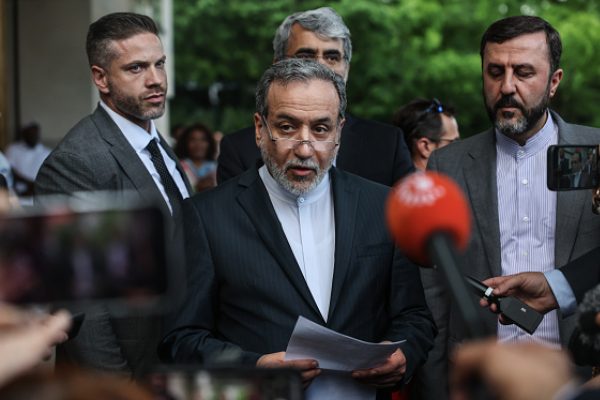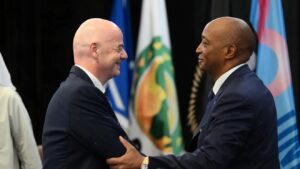Iran has agreed to continue nuclear talks with the “E3” European countries next week, ahead of a deadline set by France, Britain, and Germany on August 31 to trigger a “snapback” sanctions mechanism.
Iranian Foreign Minister Abbas Araqchi and his French, British and German counterparts agreed on Friday to resume talks on nuclear and sanctions issues.
Days before a European deadline, Araqchi called his counterparts in France, Germany, and Britain on Friday in an attempt to prevent the reinstatement of UN sanctions related to Iran’s nuclear program.
The three European nations, known as the E3, who signed the 2015 Iran nuclear agreement from which the United States withdrew in 2018, will hold negotiations with Iran next week, according to French Foreign Minister Jean-Noël Barrot.
German Foreign Minister Johann Wadephul confirmed talks next week and warned Iran that sanctions would snap back into effect unless it reached a verifiable and durable deal to defuse concerns about its nuclear ambitions.

He reiterated that time was very short and Iran needed to engage substantively.
European concerns over the Iranian programme has mounted since Tehran cut off all cooperation with the International Atomic Energy Agency (IAEA) after Israel launched a 12-day war against Iran in June.
Iran has long insisted its programme is peaceful, though it is the only non-nuclear-armed nation enriching uranium at that level.
Read Also
The US, the IAEA and others say Iran had a nuclear weapons programme up until 2003.
In a letter dated August 8, the E3 warned Iran it would proceed with “snapback” if Tehran didn’t reach a “satisfactory solution” to the nuclear issues.
A deadline was set for August 31, leaving little time for Iran to likely reach any agreement with the Europeans, who have grown increasingly sceptical of Iran over years of inconclusive negotiations over its nuclear programme.
Restoring the IAEA’s access is a key part of the talks.
Iran has blamed the war with Israel in part on the IAEA, without offering any evidence.
The IAEA issues quarterly reports on Iran’s programme and the 2015 deal gave the agency greater access to keep track of it.
Its Board of Governors voted to find Iran out of compliance with its obligations to the agency the day before the Iran-Israel war began.
Araghchi has attempted to downplay the threat that “snapback” represents. According to his comments, Iran will consider the “snapback” threat with its friends, most likely China and Russia.
The “snapback” power under the nuclear agreement expires in October, increasing pressure on the Europeans to use it as leverage with Iran before losing it.
Under “snapback,” any party to the agreement can find Iran in noncompliance and reimpose the sanctions. After it expires, any sanctions efforts may face a veto from UN Security Council members China and Russia, both of whom have previously provided some support to Iran but did not participate in the June conflict.





